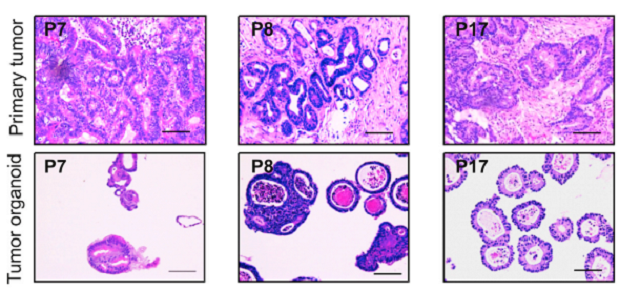Organoids are exactly what they sound like: simplified miniature organs. And now geneticists are growing them out of living cancer cells, creating tiny, living cancer tumours for study. It sounds terrifying, but it’s actually one possible way we’ll get personalised medicine to treat many kinds of cancer.
In a paper published this week in the journal Cell, geneticist Mathew Garnett and his colleagues describe how they grew organoids from colon cancer cells. The researchers say that these miniature tumours are so similar to the original tumours that they can be used to test which drugs are likely to fight each tumour most effectively.
Just as each person’s genome is different, each tumour’s genome is different, and the tumour’s genetics influence how it will react to different drugs. Researchers already have a pretty good idea which genetic mutations lead to cancers of the intestinal lining. But that list of common mutations is so long that researchers aren’t sure yet how each one contributes to cancer, and it’s hard to look at an individual patient’s genome and draw good conclusions about which drugs are likely to work. So researchers need to test the drugs on a good model.
Currently, most cancer research is based on cultures of tumour cells growing in a flat layer in a Petri dish. These cultures can be very useful, but they don’t have the same structure as a real tumour, and they don’t have the same diverse mix of cell types. Doctors can sequence the genomes of Petri dish cultures, but it’s hard to use them to predict how a particular tumour in a particular patient might react to a particular drug.
Garnett and his colleagues grew 22 cancer organoids based on cultures taken from 20 patients. They found that the DNA of the organoids, as well as their physical makeup, matched biopsies from the original tumours pretty closely. When they tested 83 different cancer drugs on the tumours, each tumour’s drug sensitivities differed from the others, and the researchers say that these organoids could be a reliable way to design personalised treatments for individual cancer patients’ tumours. On a broader scale, the organoids may also provide an intermediate stage of drug testing, between genetic studies and patient trials.
Picture: Cell
